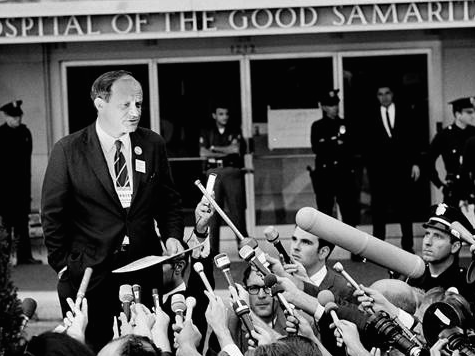Frank Mankiewicz, the politico-turned-journalist who made National Public Radio (NPR) what it is today, died on Thursday evening. He was remembered by the New York Times as the press secretary for Robert F. Kennedy and the campaign manager for George McGovern. Yet his greatest legacy is the fashioning of NPR into a liberal network that enjoys unique credibility with the intellectual elite and sets the tone for the mainstream media.
Mankiewicz was president of NPR from 1977 to 1983. During that time, the network moved beyond its original flagship program, All Things Considered, and introduced Morning Edition as NPR built a national brand. In tapping into an earlier generation of public radio infrastructure centered around universities and community organizations, Mankiewicz spent heavily to expand NPR’s reach and build a global news-gathering operation.
He also confirmed NPR’s decidedly liberal bias, which remains in tension with its public mission, and sparks periodic efforts by conservatives to rein in or cancel NPR’s federal taxpayer funding. What the Hollywood-born-and-bred Mankiewicz could not achieve in politics he achieved in media at a time when the Democratic Party shifted from being the home of the white working-class voter to being a bastion of the elite liberal gentry.
Mankiewicz eventually left NPR after failing to control spending and to raise money to keep pace with expenses. Ironically, the federal cutbacks of the Reagan era, which saw the taxpayer share of NPR funding slashed quite dramatically, spurred the network and its affiliates to raise money from listeners and private foundations. That remains the basic model today, even as the future of public funding for NPR remains a controversial topic.
Image: AP
Senior Editor-at-Large Joel B. Pollak edits Breitbart California and is the author of the new ebook, Wacko Birds: The Fall (and Rise) of the Tea Party, available for Amazon Kindle.
Follow Joel on Twitter: @joelpollak

COMMENTS
Please let us know if you're having issues with commenting.